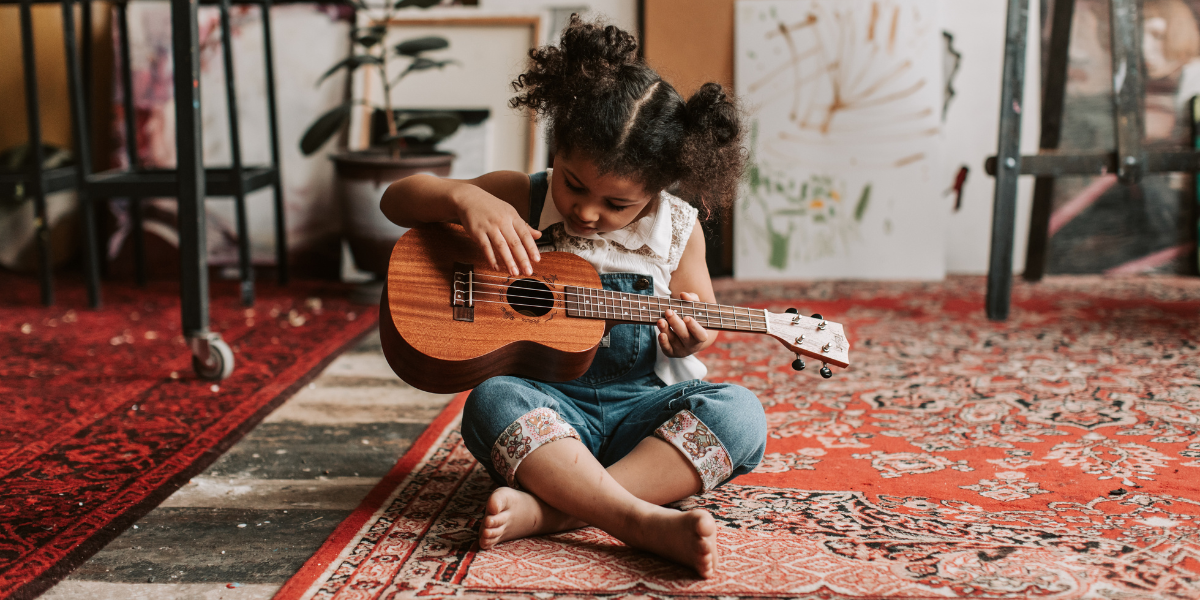Guitar Lessons Toronto for Kids: How Early Should Your Child Start?
When it comes to introducing music to children, the guitar is one of the most popular instruments for sparking creativity and building discipline. Many parents in Toronto wonder when the best time is to start guitar lessons for their kids too early, and it may be frustrating; too late, and you might miss that window of easy learning.
Let’s explore how early your child should start guitar lessons, what to expect at each age, and how to make learning enjoyable from the very first chord.
When Is the Right Age to Start Guitar Lessons?
There’s no strict “perfect” age, but most children are ready to begin guitar lessons between 6 and 9 years old. At this stage, they’ve typically developed enough finger strength, coordination, and focus to handle structured learning.
However, every child is unique. Some might show musical curiosity and rhythm awareness even earlier. The key is to observe their interest and readiness rather than just their age.
If your child constantly strums on a toy guitar or hums along to music, they might already be showing signs that they’re ready for guitar lessons in Toronto.

Can Younger Kids Learn Guitar Too?
Yes, but it depends on the teaching method and instrument size. Kids as young as 4 or 5 years old can start learning simple guitar techniques using smaller instruments, such as 1/4-size or 1/2-size guitars, designed specifically for little hands.
At this age, lessons should be fun and exploratory focusing on rhythm, listening, and hand coordination rather than strict technical playing. Short, engaging lessons (around 15–20 minutes) help keep their attention while building a positive association with music.
Parents can encourage early learners by creating a musical environment at home playing songs together, clapping to rhythms, or letting the child “perform” for family members. The goal is to nurture confidence and joy, not perfection.
The Benefits of Starting Guitar Lessons Early
Starting guitar lessons early offers numerous advantages that go far beyond music itself.
1. Enhances Cognitive Development
Learning music helps strengthen memory, attention span, and problem-solving skills. Studies show that children who play instruments often perform better academically due to improved concentration and discipline.
2. Builds Hand-Eye Coordination and Dexterity
Guitar playing requires finger independence and coordination, which enhance fine motor skills especially beneficial for young children still developing muscle control.
3. Boosts Confidence and Emotional Expression
Music allows children to express themselves creatively. Mastering songs and performing them builds self-esteem and helps children manage emotions constructively.
4. Encourages Patience and Perseverance
Learning to play the guitar teaches valuable life lessons: progress comes with practice. Kids learn the reward of persistence and enjoy the satisfaction of mastering new skills.
Choosing the Right Guitar for Kids
Picking the right instrument is crucial for comfort and motivation.
- Size matters: For ages 4–6, a 1/4-size guitar is ideal; for ages 7–9, a 1/2 or 3/4-size guitar works best.
- Acoustic vs. electric: Acoustic guitars are great for beginners since they’re simple and portable, but some children find electric guitars easier to play due to lighter strings and smaller necks.
- Quality over looks: A cheap toy guitar can discourage learning due to poor sound and tuning. Opt for a reliable beginner model designed for children.
Parents can also visit local music stores in Toronto for professional advice on choosing the right instrument for their child’s needs.
Finding the Right Guitar Instructor in Toronto
Choosing the right instructor is just as important as the guitar itself. Look for a guitar teacher who specializes in children’s guitar lessons and uses engaging, age-appropriate methods.
Good instructors know how to blend fun with structure incorporating games, songs, and challenges that keep kids excited about learning. Patience, positivity, and adaptability are key qualities to look for in a teacher.
If you’re searching for a place that offers personalized and encouraging guitar lessons in Toronto, consider Elite Music Academy, where experienced instructors provide fun and motivating lessons tailored to each child’s learning style both in-person and online.
Tips to Keep Your Child Motivated
- Set realistic goals: Start with simple chords or short songs. Celebrate small milestones.
- Create a practice routine: 10–15 minutes a day is enough for beginners. Consistency is better than long, infrequent sessions.
- Join group lessons or recitals: Learning with others helps kids stay inspired and make friends.
- Keep lessons playful: Let your child choose songs they like. Mixing learning with creativity makes practice enjoyable.
- Be supportive: Show interest in their progress, attend lessons, listen to performances, and give positive feedback.
When to Move to the Next Level
After about six months of consistent practice, your child may start showing clear progress, better finger placement, smoother chord transitions, and a growing sense of rhythm. At this stage, your instructor might introduce simple melodies, reading tabs, or even songwriting exercises.
As kids mature and their hands grow stronger, they can transition to larger guitars and more advanced lessons. The important thing is to progress at their pace while keeping music enjoyable.
Conclusion
Starting guitar lessons in Toronto at an early age can open doors to creativity, discipline, and self-expression that benefit children for a lifetime. Whether your child begins at 5 or 9, what matters most is a supportive environment, the right instructor, and consistent encouragement. With patience and passion, your little musician can strum their way into a lifelong love for music.
FAQs About Guitar Lessons for Kids in Toronto
1. What’s the best age for my child to start guitar lessons?
Most children can begin around 6–9 years old, but some may start as early as 4 with simplified lessons and smaller guitars.
2. How long should kids practice guitar daily?
For beginners, 10–15 minutes a day is ideal. The goal is to build consistency and enjoyment, not long practice hours.
3. Do children need to know how to read music first?
Not at all. Many guitar teachers use simple chords, colors, or tablature for kids before introducing music notation.
4. Should my child start with an acoustic or electric guitar?
Both are fine! Acoustic guitars are simpler to manage, while electric guitars can be easier to play due to softer strings.
5. How can I tell if my child is ready for guitar lessons?
If your child shows interest in music, can focus for short periods, and enjoys rhythmic activities, they’re likely ready to begin lessons.


